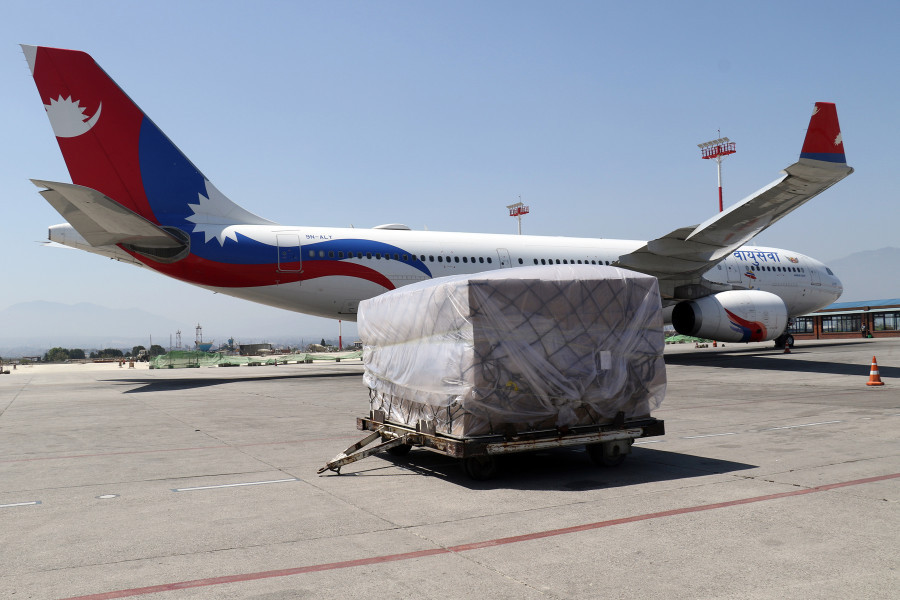National
Lack of urgency to investigate Omni case raises concern
The anti-graft agency appears toothless when it comes to high profile corruption cases, observers say.
Prithvi Man Shrestha
Investigation into the alleged irregularities in the procurement of medical goods by Omni Business Corporate International during the early days of Covid-19 pandemic has not made much progress even after months.
A probe report prepared by the Public Accounts Committee of Parliament has found the involvement of unauthorised persons in the decision making process for the procurement of medical goods at unusually high rates.
But the Commission for Investigation of Abuse of Authority (CIAA), the constitutional anti-graft body, seems to be doing little to pursue the case.
The CIAA has said that its investigation is still ongoing.
“The case is under investigation. We are not sure when the investigation will conclude,” said Narayan Prasad Risal, spokesperson at the commission.
The government on March 25 had assigned Omni Business Corporate International to purchase medical equipment from China after the first cases of coronavirus were reported in the country. Omni brought in its first batch of supplies on March 29, but the Health Service Department cancelled the agreement on April 1 after the deal landed in a controversy.
It was revealed that the deal with Omni was signed in a non-transparent way and the price quoted by the firm to supply the medical goods appeared to be more expensive than what other suppliers had quoted.
Two ministers in the Oli government were among the individuals who had overseen the deal, stakeholders suspect the anti-graft body is under pressure from the government not to pursue the case.
Media reports too have suggested a deep link between the decision makers and Omni, leading to the suspicion that the procurement contract was a result of collusion between the government officials and the company.
The CIAA has also suspended or delayed its investigation into other other major corruption cases, like Yeti Holdings’ Durbarmarg land lease deal with Nepal Trust, land procurement by Nepal Oil Corporation, and alleged graft deal between Gokul Baskota, the then communication minister, and a local agent of foreign security printing press.
The anti-graft agency appears toothless when it comes to high profile corruption cases, observers say.
“The commission has shown the tendency of seeking order from the higher political authorities which is also reflected in this case, where questions have been raised about the role of Deputy Prime Minister Ishwar Pokharel and Tourism Minister Bhanu Bhakta Dhakal, who was the health minister at the time of the Omni deal,” said Khemraj Regmi, former president of Transparency International, Nepal, an anti-corruption advocacy group.
The Public Accounts Committee of Parliament on Monday sent a letter to the CIAA, asking the latter to initiate investigation into the Omni deal.
Rojnath Pandey, secretary of the House committee, told the Post that the letter was sent as per the committee’s decision three months ago.
In the letter, the committee has stated that authority was abused by allowing the unauthorised persons to take decisions on the deal by going against the public procurement regulation and that the procurement agreement was signed without preparing a cost estimate and budget.
The letter also mentions that the agreement was signed to procure the medical goods at rates that were higher than the ones the government had paid for similar goods earlier.
According to the probe report of the Public Accounts Committee, the then health minister Dhakal had decided to award the controversial medical equipment procurement contract to Omni upon the advice of his chief advisor Dr Khem Karki.
The document says that Karki didn’t have the legal authority to recommend Omni Group to procure medical equipment from China. It also says that due process wasn’t followed in the procurement and equipment and medicines were bought at rates higher than that of the market.
According to the report, Omni bought N95 masks at Rs 828.67 per piece though the market rate was only Rs 462.50. It also bought thermometers (non-contact) at Rs 7,500, but the market rate was only Rs 4,000 until a month earlier.
Regmi, the former president of Transparency International, said despite clear indication of corruption, the anti-graft body has shown no urgency to investigate the case.
“This has raised questions if this case would also be dumped like other high profile cases,” he said.




 9.7°C Kathmandu
9.7°C Kathmandu














